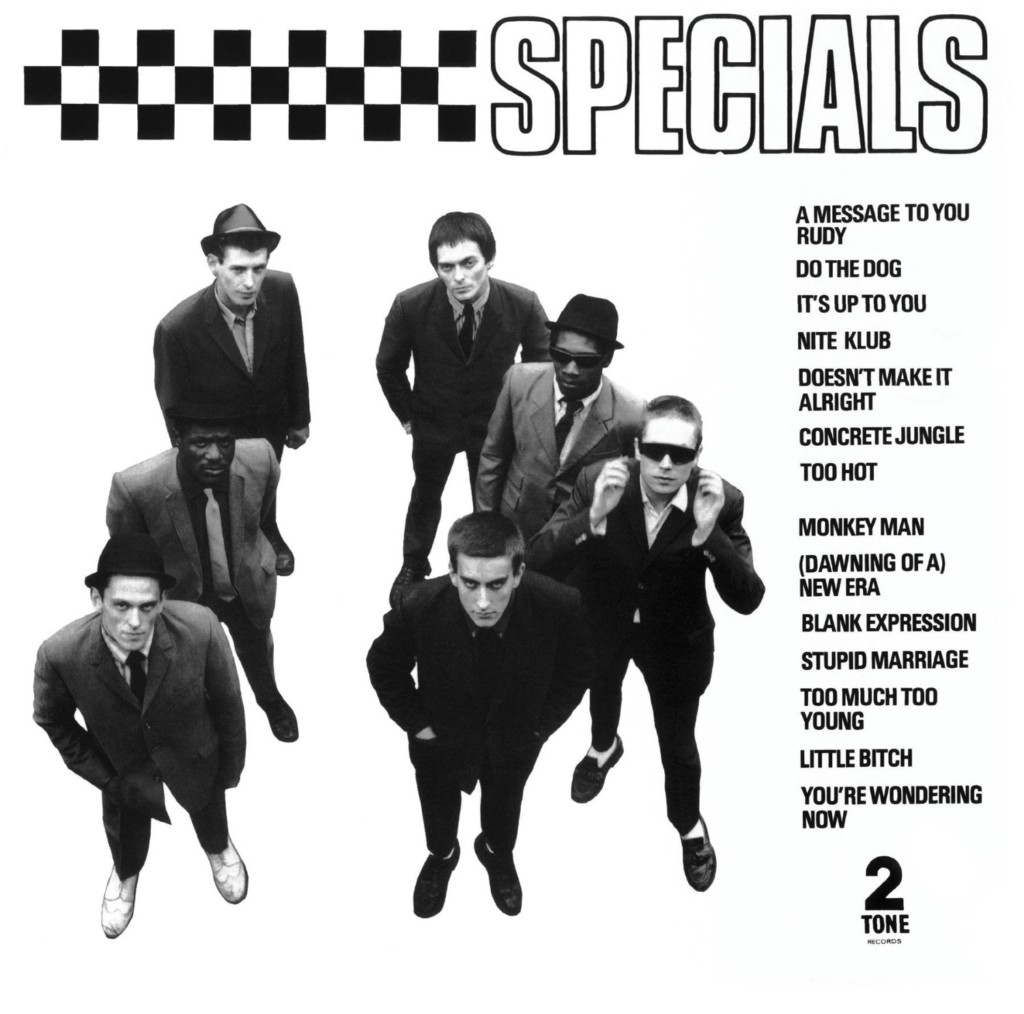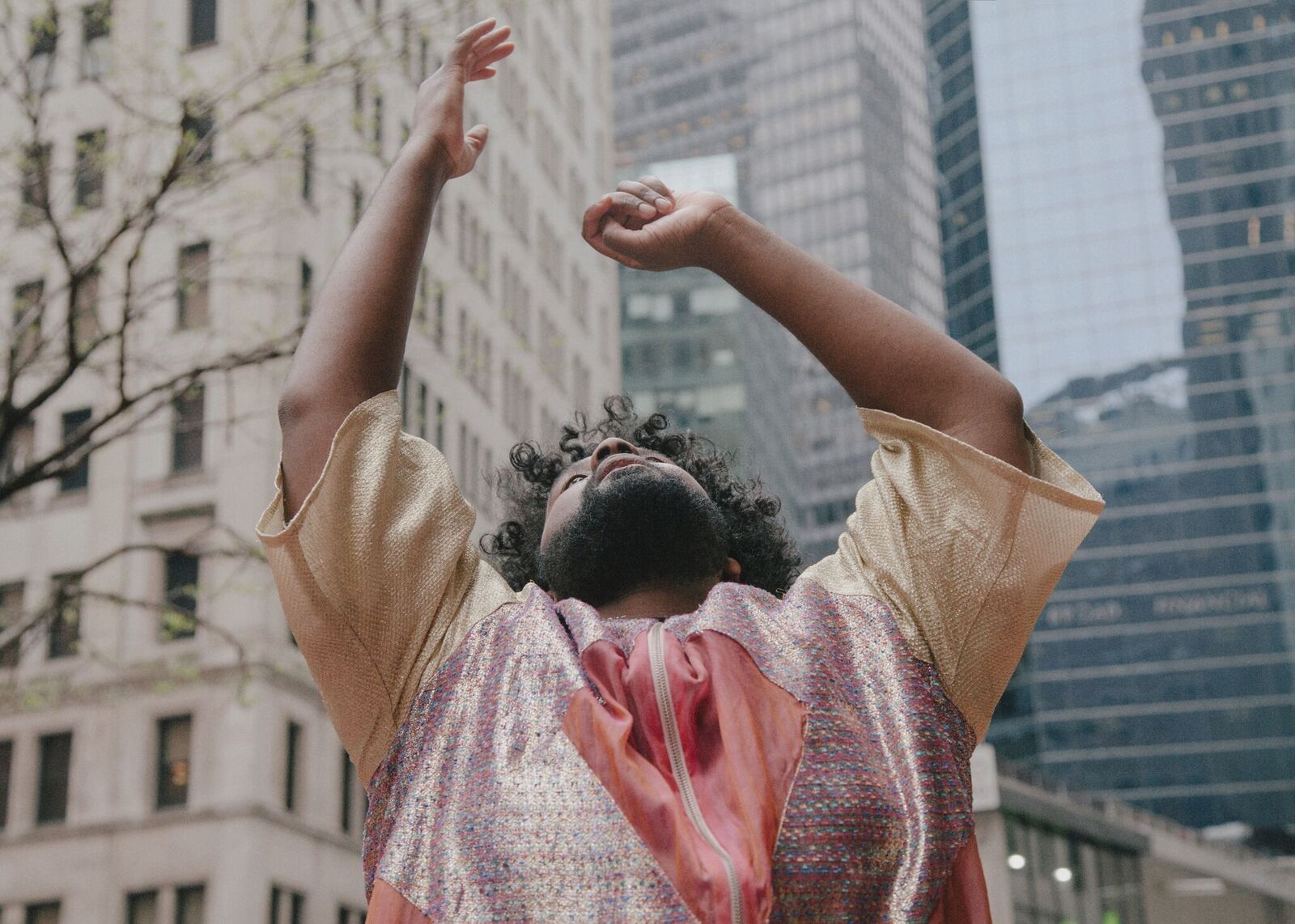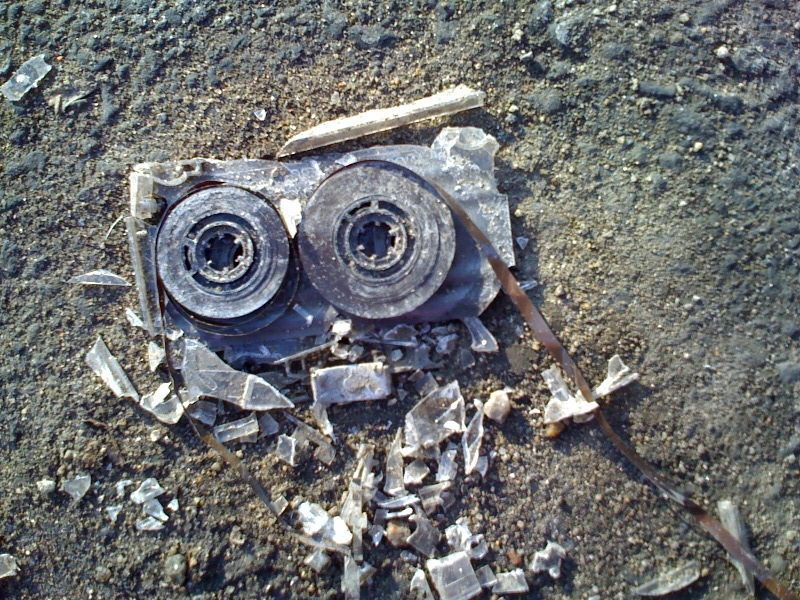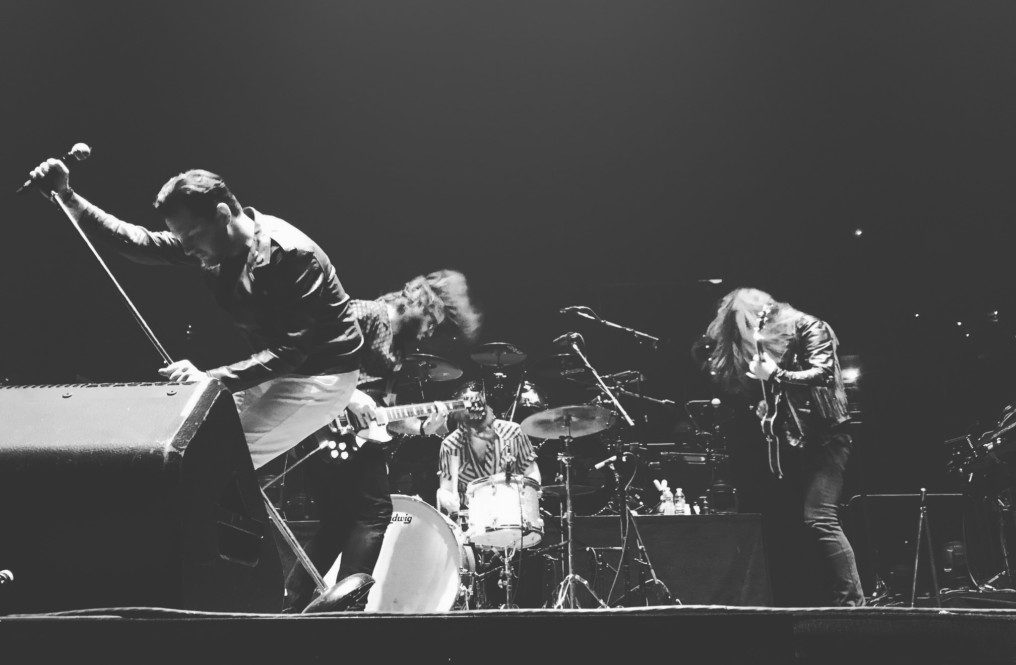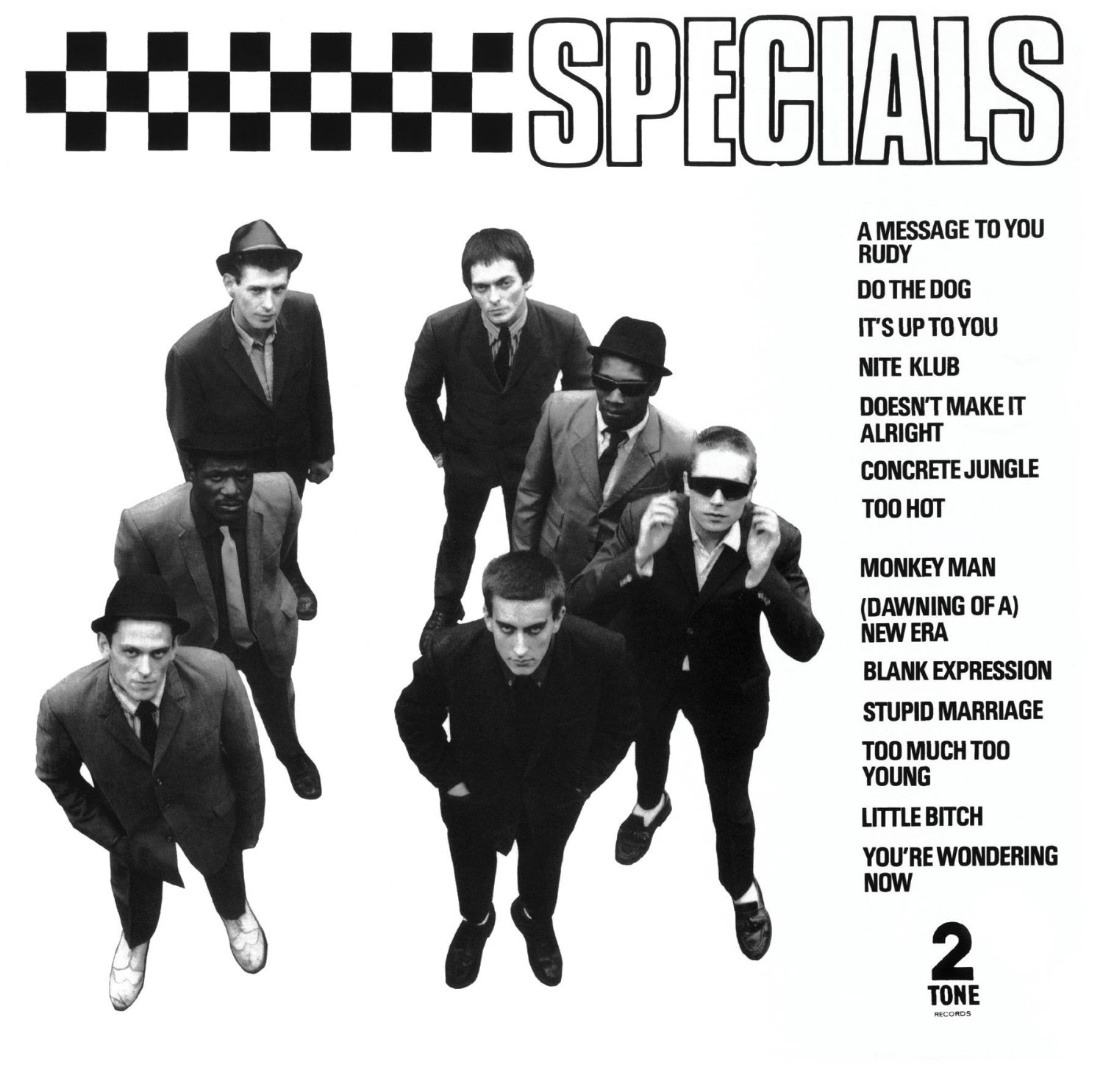
It is likely that whenever the Specials sang “pick it up, pick it up, pick it up!” they were not talking about your disposition. Maybe they meant the beat or your beer or the change on the ground…but why not your ‘tude while you’re at it?
It is a gross understatement to say that music makes you feel things. Composers know this well. Score writers know just when to cue in the strings to make a little tear fall, and massage therapists know which new age selection makes you relaaaaaaxxx.
But what about the other end of the emotional spectrum? What if the conductor of life’s cruel symphony is already making you cry, facilitating your craving for Duncan Hines easy-bake cake, and keeping you stuffed under innumerable layers of blankets with nothing but a bottle of Shiraz on your nightstand? How do you ‘pick it up’ then?
I’ve searched high and low for what some call a “good day record,” but often to no avail. Songs are too tied up in life events, too burdened by association to bleach away the sad or effectively spike endorphins. The C major scale can sound ecstatic on an on day, and cataclysmic on an off one. But wouldn’t a music writer have an entire fleet of mood-altering records at her disposal? 12-inch, black wax happy pills to make everything better?
No.
Both sad and true, there is only one album I’ve found in all my searching, that pinches me awake from the downward swirling hellhole of a bad mood. It’s the Specials’ 1979 self-titled debut that does it. It is my only hope, and I toss it back like a shot of bourbon after a long workday.
I’ve spoken at length about my parents’ respective record collections and the gratis therapy they have provided over the years. But of all the sleeves I’ve removed from those shelves The Specials is somehow the only album I’ve ever found that can snap me out of a bad day with Pavlovian accuracy…though I am currently taking submissions for more!
With its initial wheezes of harmonica and organ, it is a record that elicits instantaneous joy, a little cloud of dopamine in my limbic system. There are moments throughout its 14 songs that require tiny rituals of an obsessive quality. I will urgently drop a sandwich or press the phone between my ear and shoulder to catch that little snare fill in the beginning of “A Message To You Rudy.” Don’t try to stop me.
The effect this album has on me goes deeper than a “happy” sound or lyrical content. It isn’t as though the Specials only sang about the good life; there are tracks in their catalogue about everything from drunken bar brawls, to adulterous girlfriends, depressing clubs, a wasted London, and being an overall useless human being. Perhaps had I caught the 2 Tone bug later in life, that first record wouldn’t have the same beatific effect on me, but as it stands I pop it like a mood stabilizer.
I don’t focus so much on the lyrics, but rather the beat, the bounce, that crazy organ player Jerry Dammers who makes Shane Macgowan look like he has a nice set of teeth. I picture all seven members bobbing around like dancing ants in their little matching suits, black and white just like the musicians themselves. I think of horn sections, and shiny shoes, and the rhythmic absurdity that is skanking. I think of being in the kitchen as a 13-year-old, making failed attempts at baking and zine-making. Or of the time I gave my mother (partially at her request, and 100% to her boyfriend’s dismay) a Chelsea haircut. Bitch bangs and all. The Specials seemed to be a record to play amongst loved ones, or at a party, and it was never an album met with dissent.
The fact that this record came out almost 40 years ago is baffling to me. Of course it was born of a very specific, genre-heavy era in the British music scene, but it somehow remains fresh sounding-as crisp as the pleats in vocalist Terry Hall’s trousers. A lot of the credit for such timelessness can no doubt be paid to the record’s producer, the sire of cool Elvis Costello, who teamed up with the band to get everything tight in the studio.
For all of the depths I wade in the name of musical discovery, this is an album that persists with its importance. On the (very) rare occasion that I am asked what band I would be in if time wasn’t an object, I say the Specials. Are they my favorite band? No. But I can’t imagine a more fun group to be in. I turned to fellow music critics for answers; why won’t this record erode? Why, despite its birth in the nightmare of Thatcherite Britain, is it brimming with joy? Do others find it as timeless as I do?
Jo-Ann Greene of AllMusic made an interesting point: that the group’s debut LP was “a perfect moment in time captured on vinyl forever.” The website went on to say that it captured the spirit of “Britain in late 1979, an unhappy island about to explode,” and “managed to distill all the anger, disenchantment, and bitterness of the day straight into their music.”
That almost solves it for me, because what the Specials were doing on a grander, more socio-cultural level as the 1970s spilled into the ‘80s, I am attempting to do in my own mind; to take “all the anger, disenchantment, and bitterness of the day” and channel it into something more worthwhile. To “pick it up” and put it somewhere useful, like on the dance floor.
I’m not trying to write a self-help text here (though if I did it might be called Dance The Death Away). But I am trying to give credence to a phenomenon that endlessly fascinates me: that these little vibrations in our cochleae can so violently shift our emotional tide in ways that other stimuli cannot. The power of sound has been honed to such an extent that it has been weaponized for god sake, which admittedly is more to the credit of frequency than emotional response, but it certainly doesn’t undercut the impact of the aural.
A few years ago I reviewed a documentary for Film Forward called Alive Inside that discussed the effect of music on the memory of Alzheimer’s victims. The results, though perhaps not representative of a large enough study group, were pretty astonishing. It seemed that when the Alzheimer’s patients at a nursing home were played the music of their youth they were overcome with detailed memories and emotion.
Yet another study from 2011 dealt with the (proven) direct link between music and mood, citing that when subjects played their own selections of songs, they experienced “chills,” a scientific term summarizing the enormous amounts of dopamine the brain releases with such stimulation. The same reaction occurs during (good) sex, eating sweets, and injecting certain drugs.
But you don’t have to have bad sex, or spike your glycemic index, or shoot heroin. Music surely doesn’t solve all of the world’s problems, or even all of one’s own problems, but it’s a crutch I’m happy to lean on. As Morrissey once sang: “the world is full of crashing bores,” and that is true. Yet we bores are humans, and we humans have only so many things to count as true victories…is not one of them music?
We’ve figured out how to make instruments out of everything from gourds to pure vibrations in air. So in all this chaos, and mayhem, I will try to remember that in bleak Thatcher London in 1979, when people were rioting and on the dole, and race tensions were taut, this glimmering little record by The Specials burst through and made a handful of people dance. I hope we can pick it up from there.

